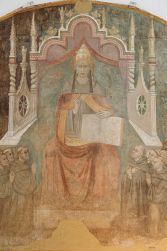The concept of story is as old as time itself. Everything in existence tells a story. We can dig into the ground and find evidence to construct a history of ancient civilizations. History itself is a story, a high-story, a narrative of past events. Humans have been telling stories since before the introduction of writing in the late third millennium BC. Today we’ve refined storytelling into an art. And since the printing press, storytelling has become a massive commercial market.
 We all enjoy a good story. A good story engages you emotionally, and really good stories can pull you in so far that the world around you seems secondary to this other narrative. I remember reading The Shadow Rising (book four in Robert Jordan’s Wheel of Time series), and I had nearly finished the second half of the book in one sitting before I realized that the next day was dawning. Good stories captivate us immensely. The medium doesn’t matter: big screen, TV, smartphone, radio, e-reader, newspaper… they all relay stories. Story is everywhere in our lives. But in regard to Christians and fiction genres — particularly those with so-called “objectionable content” — lines have been boldly drawn between what is appropriate and what is not. As a fan of literature, this has caused me some frustration and concern. So I pose the question: Must we, as Christians, protect ourselves from objectionable content by abstaining from these fictional works, regardless of their other benefits?
We all enjoy a good story. A good story engages you emotionally, and really good stories can pull you in so far that the world around you seems secondary to this other narrative. I remember reading The Shadow Rising (book four in Robert Jordan’s Wheel of Time series), and I had nearly finished the second half of the book in one sitting before I realized that the next day was dawning. Good stories captivate us immensely. The medium doesn’t matter: big screen, TV, smartphone, radio, e-reader, newspaper… they all relay stories. Story is everywhere in our lives. But in regard to Christians and fiction genres — particularly those with so-called “objectionable content” — lines have been boldly drawn between what is appropriate and what is not. As a fan of literature, this has caused me some frustration and concern. So I pose the question: Must we, as Christians, protect ourselves from objectionable content by abstaining from these fictional works, regardless of their other benefits?
What is “objectionable content”? In researching this post, I saw the term thrown about almost everywhere, although few sources actually defined it. For the sake of my discussion, three categories sum it up: gratuitousness (material that is over-the-top, unwarranted, and lacking good reason); explicitness (explaining or stating something in a detailed and graphic fashion); and amoral tone (indifference to what is right or wrong).
Culturally, we are sensitive to this sort of content. Movies, television, music, and video games all have  content ratings. Christian bookstores have taken this a step further by actually censoring and banning publications. For example, Rachel Held Evans writes that LifeWay Christian bookstores banned the Academy Award-winning movie The Blind Side (available at Rolfing on DVD) because it contained, according to the Southern Baptist Convention, “explicit profanity, God’s name in vain, and racial slur.” In another example, Jeff Gerke’s experimental imprint Hinterlands — designed to publish Christian sci-fi and fantasy books with mature content — was considered controversial, despite the extreme popularity of its first publication (and Christian novelist Mike Duran has plenty to say about it). We can reasonably conclude that a fundamentally conservative brand of Christianity is opposed to most content that is even remotely objectionable, especially within the Christian market.
content ratings. Christian bookstores have taken this a step further by actually censoring and banning publications. For example, Rachel Held Evans writes that LifeWay Christian bookstores banned the Academy Award-winning movie The Blind Side (available at Rolfing on DVD) because it contained, according to the Southern Baptist Convention, “explicit profanity, God’s name in vain, and racial slur.” In another example, Jeff Gerke’s experimental imprint Hinterlands — designed to publish Christian sci-fi and fantasy books with mature content — was considered controversial, despite the extreme popularity of its first publication (and Christian novelist Mike Duran has plenty to say about it). We can reasonably conclude that a fundamentally conservative brand of Christianity is opposed to most content that is even remotely objectionable, especially within the Christian market.
Today, virtually every mainstream genre has an alternative Christian sub-genre that intertwines these genres with conservative theology, while omitting any edgy material. In a Library Journal review, Melanie Duncan notes how Christian fiction is criticized as simplistic storytelling that can’t compete with the mainstream publishing market. Even when the Christian market has endeavored to expand into edgier genres, it still holds to some basic principles: Christian morals, inspirational themes, and family values. However, it is undeniable that there are a plethora of great stories that aren’t Christian and that occasionally lack the aforementioned principles. So, how do Christians approach these stories that contain “objectionable content”?
 Consider the epic fantasy series, A Song of Ice and Fire, more commonly known as Game of Thrones. The first book was published in 1996 and it, along with every succeeding book in the series, won numerous literary awards. The television adaptation on HBO has become that network’s most successful series to date. The series’ success is not surprising, as George R. R. Martin has written a true epic that is incredibly complex yet relatable.
Consider the epic fantasy series, A Song of Ice and Fire, more commonly known as Game of Thrones. The first book was published in 1996 and it, along with every succeeding book in the series, won numerous literary awards. The television adaptation on HBO has become that network’s most successful series to date. The series’ success is not surprising, as George R. R. Martin has written a true epic that is incredibly complex yet relatable.
HBO’s adaptation, like the books themselves, does not shy from violence, sexuality, crude language, and a very raw depiction of a depraved human nature. The popular series has sparked much discussion about how Christians should interact with stories that contain such content. In an interview with Michael Trimmer, Christian science fiction author Simon Morden responds to several inquiries regarding the series’ more graphic material. Morden points out that certain attractive, rich elements of story-writing are present in the series, and considers these benefits in relation to the “objectionable content” in the same books.
As Christians, do we draw a line? Do we dismiss a series like this due to its “objectionable content” or do we say, “Enjoy the story, but please read/view responsibly”? As consumers of literary material, we have liberty to choose what we want to read; as Christians, we need to make a responsible choice. What do we do?
Allow me to offer some guidance. Amy Becker argues in Christianity Today that Christians should be reading non-Christian fiction because these novels challenge us to see things about our culture through a different lens, purporting perspectives that can educate us about our culture and how we can engage it. They also challenge us to realize the humanity that we “share with everyone else, in our common brokenness and our common beauty.” In a similar vein, Alan Noble says, “Sometimes we have to read hard, ugly, offensive, depressing things to understand our world, and thereby love our neighbor.” The point here is that sometimes there are hard truths found in non-Christian fiction that are valuable, even from a Christian worldview.
 How do A Song of Ice and Fire and the Game of Thrones TV series measure up? In a Christianity Today article from last year, Jonathan Ryan states that Game of Thrones is too dark to be realistic, refuting George R. R. Martin’s claim to hold a realistic view of humanity. But then again, Martin’s world in Game of Thrones is amoral at best, says Morden. Furthermore, there is no great good versus evil struggle in Martin’s books, a theme to which Christians readily relate. Is there any benefit, then, for Christians to read this series and others like it?
How do A Song of Ice and Fire and the Game of Thrones TV series measure up? In a Christianity Today article from last year, Jonathan Ryan states that Game of Thrones is too dark to be realistic, refuting George R. R. Martin’s claim to hold a realistic view of humanity. But then again, Martin’s world in Game of Thrones is amoral at best, says Morden. Furthermore, there is no great good versus evil struggle in Martin’s books, a theme to which Christians readily relate. Is there any benefit, then, for Christians to read this series and others like it?
One benefit is that the broken world in Game of Thrones can shake us out of apathy. It is easy to forget that we live in a similarly broken world, one that increasingly requires the efforts of Christians to improve and protect it. There is also an element to Game of Thrones that I — and many other Christians — can identify with. Martin’s fictional land of Westeros is caught up in endless conflict, yet there is still a subtle resurgence of hope for resolution and redemption. That is very much a Christian theme! It’s beneficial to us to remember that Christian faith and hope is forward-looking and teleological. I think that non-Christian fiction often depicts worldviews that share desires similar to ours, even in the face of a raw-nature’d humanity.
Finally, can a Christian university library have series like A Song of Ice and Fire in their catalog? Absolutely! Rolfing even has Game of Thrones. I think that as students, library patrons, and avid readers, we ought to be committed to a good story — and good stories don’t always come with a “PG” rating. We can appreciate such literature for the art that it is. It’s not just entertainment; it engages our minds and imaginations.
EE9s2ugi1zBRbo8ivMBQ~~_26.JPG) I don’t think that there are lines that we must draw when it comes to “objectionable content” in non-Christian fiction. Ultimately, what one does and doesn’t read is an individual choice. (If you do need some direction, Brett McCracken’s Gray Matters: Navigating the Space Between Legalism & Liberty offers a helpful model of discernment.) However, when we do read books with “objectionable content,” we have a responsibility to be critical of their themes and worldviews. As Christians, we should challenge ourselves to read these stories responsibly and critically.
I don’t think that there are lines that we must draw when it comes to “objectionable content” in non-Christian fiction. Ultimately, what one does and doesn’t read is an individual choice. (If you do need some direction, Brett McCracken’s Gray Matters: Navigating the Space Between Legalism & Liberty offers a helpful model of discernment.) However, when we do read books with “objectionable content,” we have a responsibility to be critical of their themes and worldviews. As Christians, we should challenge ourselves to read these stories responsibly and critically.
 In 1789, when the ink of the Constitution itself was still drying, Representative (later to become the 4th President) James Madison was concerned about the fact that senators and representatives could vote pay raises for themselves without any oversight. He lobbied to get a clause put into the Constitution itself, but failed — so he decided to take the long way around. He proposed a constitutional amendment that simply read, “No law, varying the compensation for the services of the Senators and Representatives, shall take effect, until an election of Representatives shall have intervened.” In other words, any salary changes wouldn’t take effect until after the next election (so the American public could have a say in the process). Seven states ratified the amendment, two short of the necessary two-thirds, and then the movement lost steam. However, there was one peculiar characteristic of this particular amendment: James Madison didn’t write in an expiration date. Thus, at least theoretically, it was still eligible for ratification, even if the necessary “two-thirds” was a lot bigger in the 20th century than it was in the 18th.
In 1789, when the ink of the Constitution itself was still drying, Representative (later to become the 4th President) James Madison was concerned about the fact that senators and representatives could vote pay raises for themselves without any oversight. He lobbied to get a clause put into the Constitution itself, but failed — so he decided to take the long way around. He proposed a constitutional amendment that simply read, “No law, varying the compensation for the services of the Senators and Representatives, shall take effect, until an election of Representatives shall have intervened.” In other words, any salary changes wouldn’t take effect until after the next election (so the American public could have a say in the process). Seven states ratified the amendment, two short of the necessary two-thirds, and then the movement lost steam. However, there was one peculiar characteristic of this particular amendment: James Madison didn’t write in an expiration date. Thus, at least theoretically, it was still eligible for ratification, even if the necessary “two-thirds” was a lot bigger in the 20th century than it was in the 18th.
 We all enjoy a good story. A good story engages you emotionally, and really good stories can pull you in so far that the world around you seems secondary to this other narrative. I remember reading The Shadow Rising (book four in Robert Jordan’s Wheel of Time series), and I had nearly finished the second half of the book in one sitting before I realized that the next day was dawning. Good stories captivate us immensely. The medium doesn’t matter: big screen, TV, smartphone, radio, e-reader, newspaper… they all relay stories. Story is everywhere in our lives. But in regard to Christians and fiction genres — particularly those with so-called “objectionable content” — lines have been boldly drawn between what is appropriate and what is not. As a fan of literature, this has caused me some frustration and concern. So I pose the question: Must we, as Christians, protect ourselves from objectionable content by abstaining from these fictional works, regardless of their other benefits?
We all enjoy a good story. A good story engages you emotionally, and really good stories can pull you in so far that the world around you seems secondary to this other narrative. I remember reading The Shadow Rising (book four in Robert Jordan’s Wheel of Time series), and I had nearly finished the second half of the book in one sitting before I realized that the next day was dawning. Good stories captivate us immensely. The medium doesn’t matter: big screen, TV, smartphone, radio, e-reader, newspaper… they all relay stories. Story is everywhere in our lives. But in regard to Christians and fiction genres — particularly those with so-called “objectionable content” — lines have been boldly drawn between what is appropriate and what is not. As a fan of literature, this has caused me some frustration and concern. So I pose the question: Must we, as Christians, protect ourselves from objectionable content by abstaining from these fictional works, regardless of their other benefits? content ratings. Christian bookstores have taken this a step further by actually censoring and banning publications. For example, Rachel Held Evans writes that
content ratings. Christian bookstores have taken this a step further by actually censoring and banning publications. For example, Rachel Held Evans writes that  Consider the epic fantasy series, A Song of Ice and Fire, more commonly known as Game of Thrones. The first book was published in 1996 and it, along with every succeeding book in the series, won numerous literary awards. The television adaptation on HBO has become that network’s most successful series to date. The series’ success is not surprising, as George R. R. Martin has written a true epic that is incredibly complex yet relatable.
Consider the epic fantasy series, A Song of Ice and Fire, more commonly known as Game of Thrones. The first book was published in 1996 and it, along with every succeeding book in the series, won numerous literary awards. The television adaptation on HBO has become that network’s most successful series to date. The series’ success is not surprising, as George R. R. Martin has written a true epic that is incredibly complex yet relatable. How do A Song of Ice and Fire and the Game of Thrones TV series measure up? In a Christianity Today article from last year,
How do A Song of Ice and Fire and the Game of Thrones TV series measure up? In a Christianity Today article from last year, 







 We recently launched a new e-book platform, called ebrary. Currently, there are almost 300 academic titles in our collection, and we’re adding more every week. Trinity students, faculty, and staff can search, read, highlight, and notate books in their personal ebrary accounts. In some cases, printing and downloading is also possible. Ebrary books are compatible with most laptops, smart phones, and tablets, including Android devices and Apple iOS products.
We recently launched a new e-book platform, called ebrary. Currently, there are almost 300 academic titles in our collection, and we’re adding more every week. Trinity students, faculty, and staff can search, read, highlight, and notate books in their personal ebrary accounts. In some cases, printing and downloading is also possible. Ebrary books are compatible with most laptops, smart phones, and tablets, including Android devices and Apple iOS products.